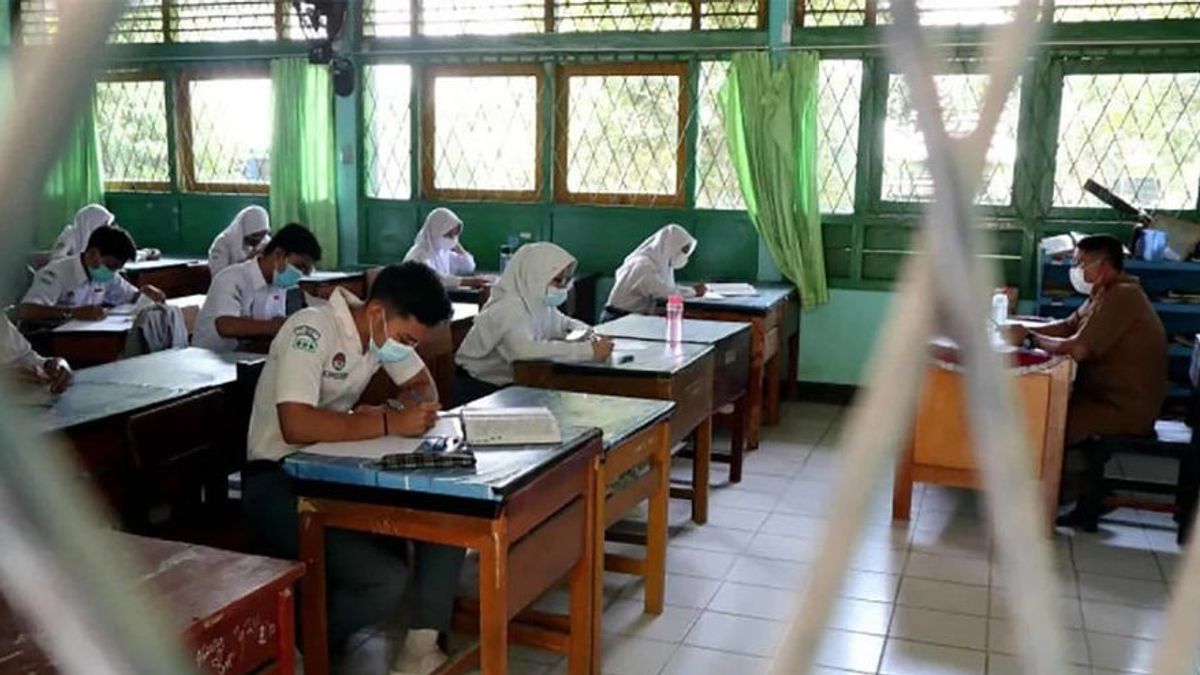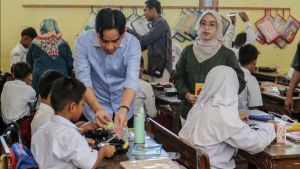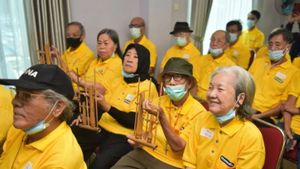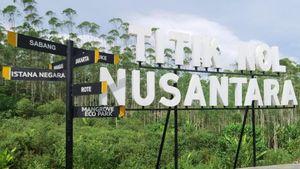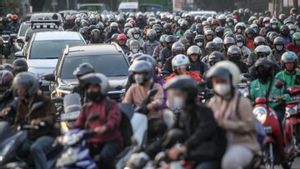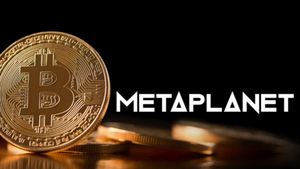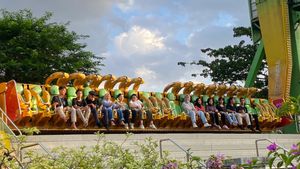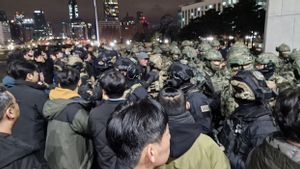JAKARTA The Teacher Education Association (P2G) stated that it is not allergic to curriculum changes, as is happening now with the Merdeka Curriculum. However, P2G does not deny that the latest curriculum concept cannot be implemented optimally.
Not long after the new academic year 2024/2025 was running, the public was busy discussing the elimination of the supervisory system at the High School (SMA) level carried out by the Ministry of Education, Culture, Research and Technology (Kemendikbudristek). This means that now there are no more majors for IPA, IPS, and Language for high school students.
The abolition of this major is actually a follow-up policy of establishing the Merdeka Curriculum as a national curriculum. Through this latest policy, students may choose the subjects they are interested in or in line with the projected majors they plan to take in universities.
P2G National Coordinator, Satriwan Salim, said that this policy had actually begun in stages since 2021, along with the trial of the Merdeka Curriculum in several schools.
Satriwan emphasized that the elimination of majors at the high school level had good intentions, but on the other hand this policy was not accompanied by readiness in the field.
The Ministry of Education and Culture has designated the Merdeka Curriculum as a national curriculum through the issuance of the Minister of Education and Culture Number 12 of 2024 concerning Curriculum in Early Childhood Education, Basic Education, and Secondary Education.
Head of the Standard Board of the Education Assessment Curriculum Anindito Aditomo said the government had introduced the Merdeka Curriculum to educational units for four years, but it had not been implemented by the education unit.
One of the derivative policies of the implementation of the Merdeka Curriculum is to abolish the majors of IPA, IPS, and Language at the high school level.
Satriwan Salim as the National Coordinator of P2G basically positively welcomed the Kemendikbudristek policy to remove the department. Satriwan explained a number of reasons that supported his argument.
First, according to him, so far people have had a mindset that one of the majors, namely IPA, has a higher caste than the other two majors, so there is a casteization in the whole area.
"Polls like this make learning not oriented towards competency development, but rather to prestige," said Satriwan when contacted by VOI.
Second, according to him, the old strain pattern does not immediately correlate with children's talents, including not being correlated with majoring in college.
He even did not deny that so far many students have chosen the IPA department because their parents asked them, even though they prefer the IPA in their souls. The urge to choose the IPA was triggered by the assumption that this department will find it easier to choose a study program at a university later. As a result, the IPA department has more students than other majors.
SEE ALSO:
Finally, said Satriwan, the selection of major dichotomy, namely IPA, IPS, and Language, is not in accordance with scientific developments, so it is not relevant to sciences provided across disciplines.
"In the Merdeka Curriculum, it is in accordance with the goals of the children, in accordance with the department they want to take in higher education," said Satriwan.
"So in the Merdeka Curriculum, children take lessons according to their talents, according to the department they will take at PT, and can cross disciplines," he continued.
Although on paper it has a positive goal, Satriwan Salim did not cover a number of challenges faced in implementing this major eradication system. One of the challenges is that not all schools have an adequate number of teachers, as well as complete infrastructure.
By giving students the widest possible freedom, there is a possibility of one subject that is in great demand by many children, but there are also few that are not even in demand at all.
For example, the findings of P2G at a State High School in Jakarta, which has three German teachers. Because these lessons are considered difficult and less attractive, this subject teacher is threatened with not meeting the minimum teaching hours limit. In fact, teachers must meet the minimum teaching hours limit as one of the requirements for teacher certification allowances.
"If there are no enthusiasts, the consequence is that teachers do not teach and this will have an impact on professional allowances. Even though this allowance requires teachers to teach at least 24 hours per week," he explained.
Due to this concern, the school finally made a'student package' scheme so that all teachers still have teaching hours. For example, the German teacher, who was packaged, so that children are required to take this subject.
This had to be done so that teachers who were not in demand could still teach and meet the requirements for teacher certification allowances.
"For schools whose conditions are not ideal, they prepare a 'packet' or'menu'. This is to cover so that there are still classes," he explained.
He realized that this was not in accordance with the Independent Curriculum, but the reality in the field was that many schools did this.
"Conditions related to the availability of teachers, facilities and infrastructure, create obstacles in implementing the Merdeka Curriculum, even though P2G basically agrees to give independence to children," said Satriwan ending.
The English, Chinese, Japanese, Arabic, and French versions are automatically generated by the AI. So there may still be inaccuracies in translating, please always see Indonesian as our main language. (system supported by DigitalSiber.id)
